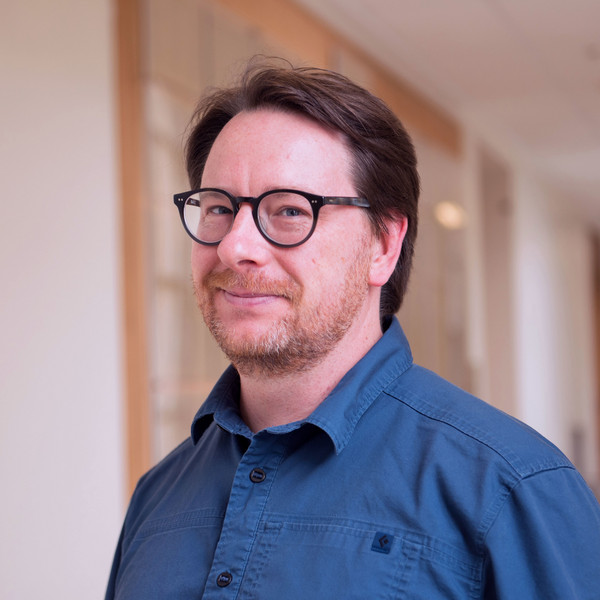Nicolas Bernier
Associate professor in digital music

An encounter with Nicolas Bernier, associate professor in digital music at the Université de Montréal Faculty of Music.
- What led you to play your instrument?
What an interesting question! In electronic musicyou don’t necessarily play an instrument in the conventional sense. And yet, whether with a computer or by inventing audiovisual devices, you can “perform” works as much as people who play acoustic instruments. The main reason for my branching off into the electronic arts is openness. There are no limits, you can play with all sounds, with all eras, with all instruments, and if something doesn’t exist, let’s go ahead and invent it!
- Which are your favorite artists, bands, albums?
They range from jazz to hip-hop, by way of math metal, contemporary music and obviously electronic. After the so-called “alternative” music of the 1990s and then trip hop and drum ’n’ bass, my principal influences can be found in the New York avant-garde scene that rotated around John Zorn’s Tzadik Records. I’m a great admirer of guitarist Marc Ribot, among others. Which makes me think of Tom Waits. Another great influence was Chicago’s post-pop/post-jazz scene, with especially Tortoise and the Chicago Underground Duo collective. I also love funk, folk, blues, noise music... In a word, I like everything, or almost! I also have to mention the defunct crossbreed-ska-pop-punk Me Mom & Morgentaler, but the list is virtually infinite.
- Tell us about a concert, exhibition or conference experience that was memorable in your career and in what way.
The first electroacoustic concert I ever attended at Usine C in 1999 shook up all my points of reference because there was only sound and no one on stage! I wanted to understand, and that was how I dove headfirst into concrete/acousmatic music research and sound experimentation.
- In what way have the directives surrounding COVID-19 modified your way of teaching?
Although this period is visibly somewhat chaotic, it forces us to adapt and, above all, to learn. Or at least to think about new methods, issues, possibilities.
November 2020